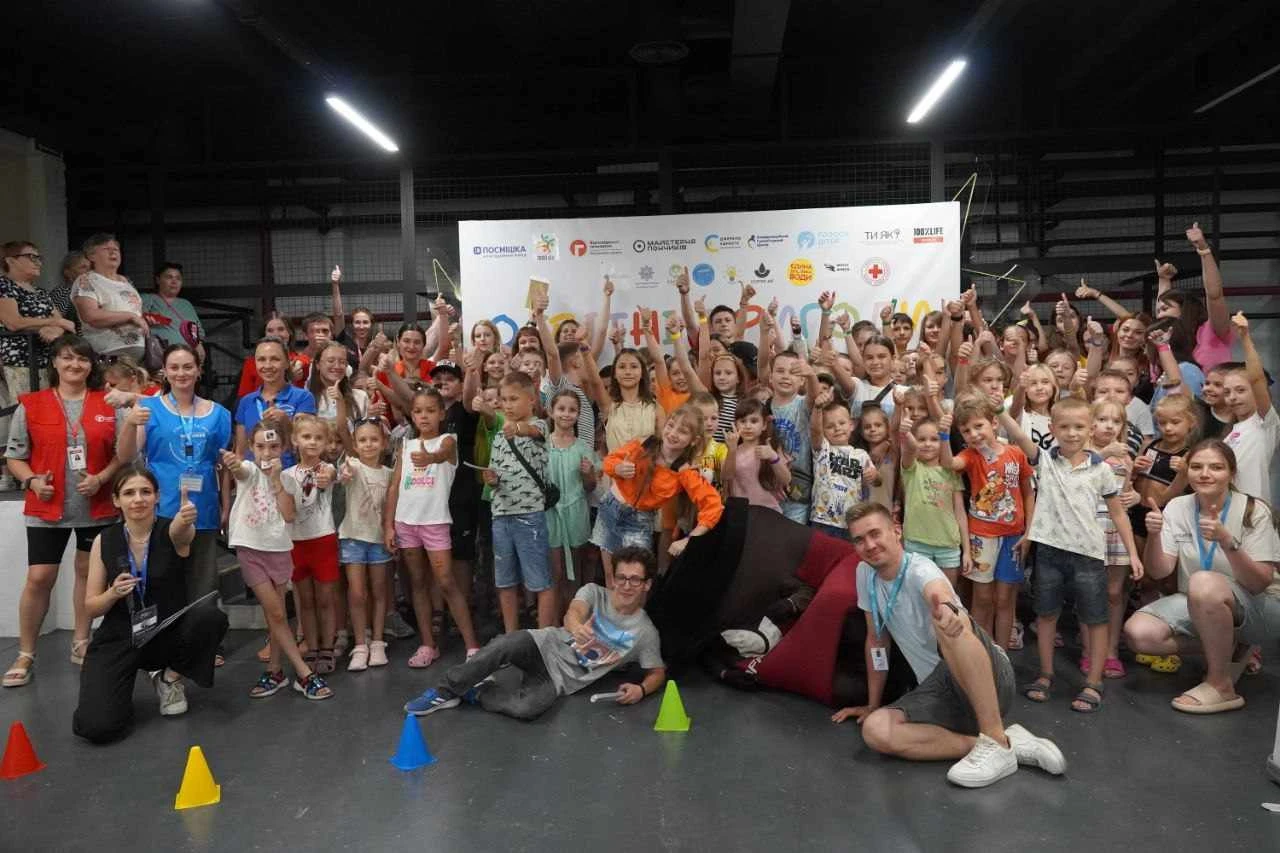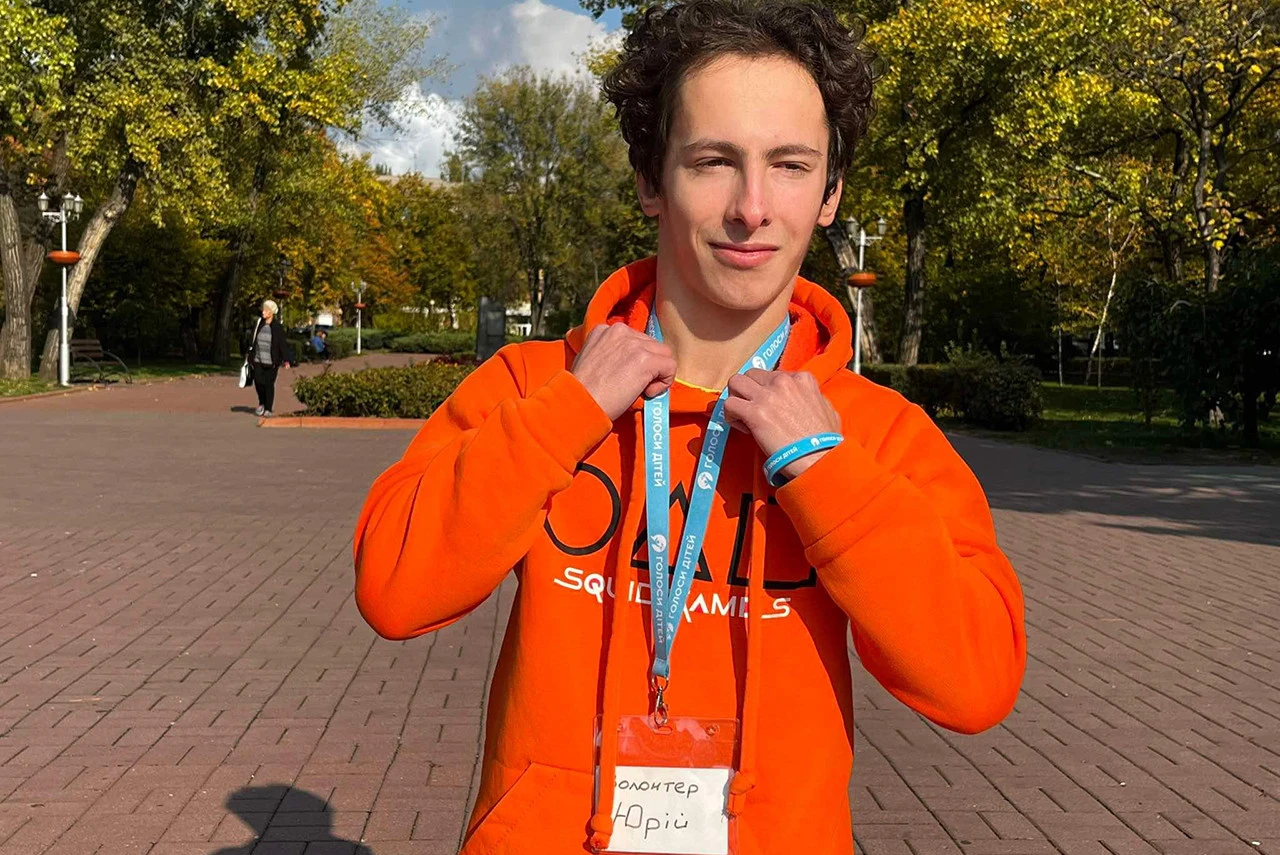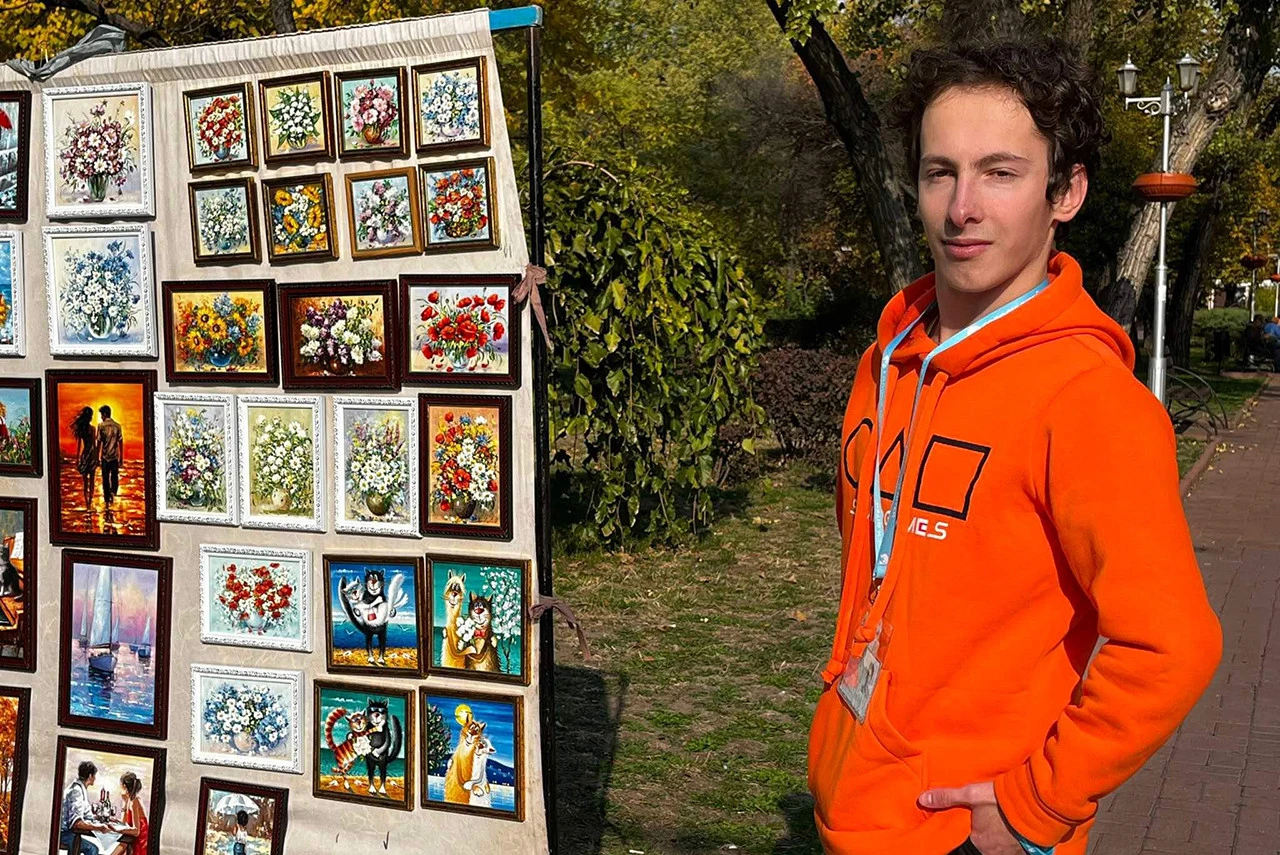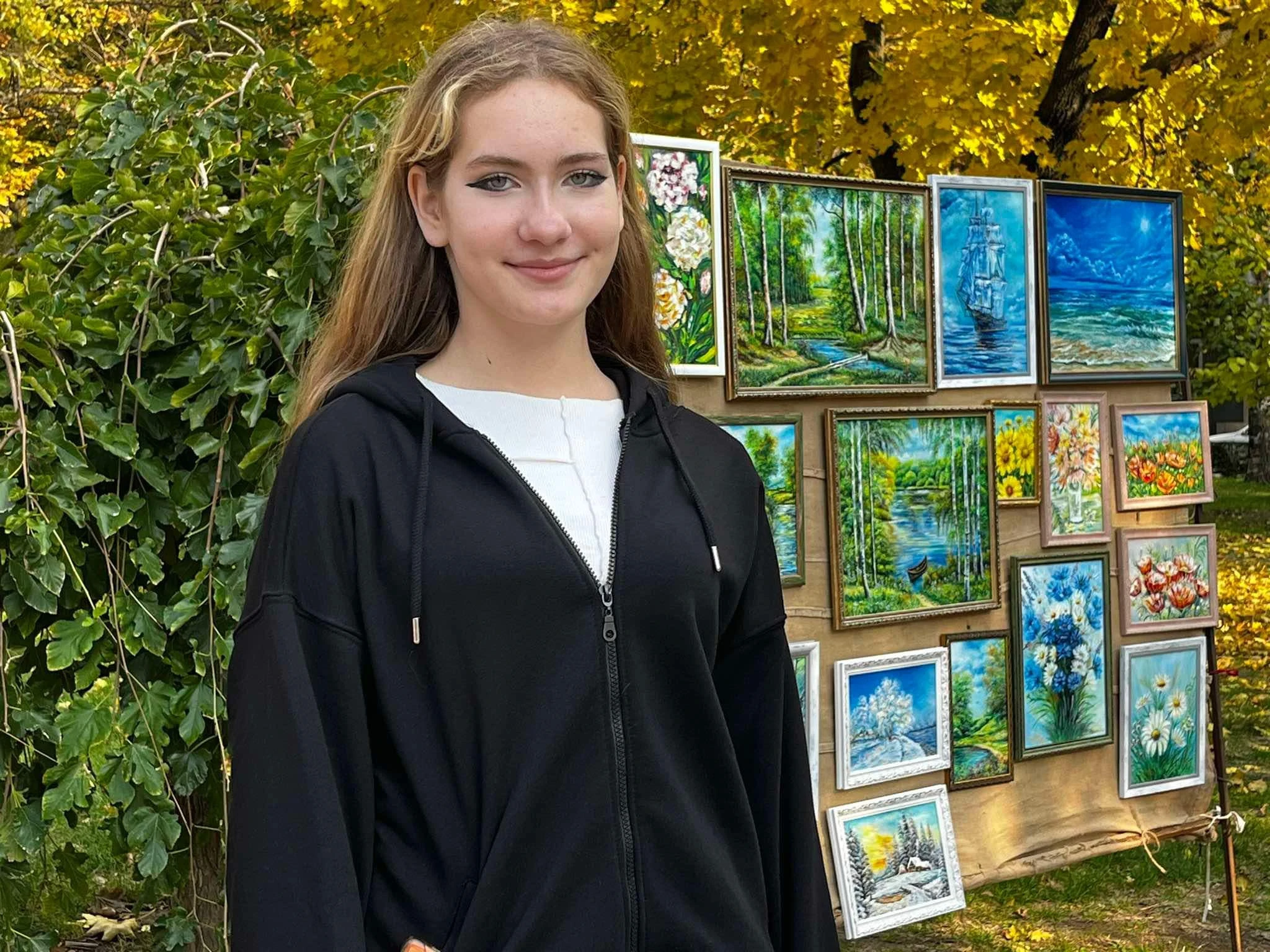
"Life inspires me": how Ukrainian teenagers support other children in frontline city
In Zaporizhzhia, located about 30 kilometers from the front line, air raid sirens sound daily. Alerts can last anywhere from a few minutes to several hours, and ignoring them is not an option. In addition to missile strikes, Russia targets the city with drones and aerial bombs
Between September 22 and the end of October alone, Russia launched over 30 guided aerial bombs at Zaporizhzhia. More than 900 houses were damaged, 5 were destroyed, and another 152 apartment buildings sustained damage. There have been casualties and fatalities.
This autumn, for the first time since 2022, schoolchildren in Zaporizhzhia returned to in-person learning. According to regional authorities, 10,000 children in the city attend school every day.
Those who have stayed in the city have adapted to the new reality. This story from Espreso focuses on teenagers who have chosen to engage in volunteering and help other children.

"I am inspired by life and boogie-woogie"
Seventeen-year-old Yurii Balalaiev proudly calls himself a "volunteer." He organizes activities for children through the charitable organizations Caritas and Voices of Children.

He lives in Zaporizhzhia with his mother. Alongside attending school, he practices Greco-Roman wrestling and acrobatic rock-and-roll (having previously studied folk dance for 10 years) and helps his coaches conduct training sessions. He says he’s figured out how to balance everything.
"I've been volunteering for over two years. I first came to the Voices of Children center as a participant, but then I wanted to become an organizer and run events myself. I tried it and liked it," the young man shares. He says he can connect with kids from age 4 to 18 and also communicates well with older people.
"Age doesn’t matter. The key is to find common ground. I read a lot, so it’s easy for me to converse. I especially enjoy books by Erich Maria Remarque, Haruki Murakami, and Sidney Sheldon."
Yurii tries to be as responsible as possible and more mature than his age might suggest. When we arranged our meeting, he set the time himself, asked all the necessary questions, and only then agreed to meet.
He shares how much he has changed since the full-scale war began: "I used to want to stand out and not be, so to speak, ‘gray.’ Now, I want to be someone who makes a difference. So when I receive thank-you letters for organizing activities or participating in sports events, I think these are steps toward my goal. I hope to inspire others."
He says the children in his activities initially seem withdrawn: "Before the war, this wasn’t the case, I think. Everyone was more open, socialized, played sports, and hung out outside."

Yurii explains that he isn’t afraid of the sounds of explosions and understands that the war is ongoing and the frontline is close. When working with children, he does everything he can to help them forget about the war: "The enemy is attacking the city, but we know it’s much more intense at the front. There, it’s a war to the death; here, it’s a war for life. I’m inspired by life. I don’t want to waste time on sadness. I want to enjoy life, to dance. The kids expect something positive and emotional from us."
He adds that he’s lucky because many friends and acquaintances stayed in the city after the large-scale war began. They gladly help him with volunteering: "I invite them, tell them we can do something for the kids on a certain day. We do it together, and the children go home in a good mood. Having my friends here is a huge support for me."
Music, especially, inspires him. When he feels down, he plays jazz, blues, classic rock-and-roll, or boogie-woogie. "Just one Elvis Presley song, and I’m ready to run workshops or organize activities," he smiles.
Yurii dreams of attending a jazz party or club, seeing a vast library with unique books, and becoming part of a large, powerful organization that hosts amazing events for kids.
In the future, he envisions a career in physical education—either as a referee or a coach—or possibly as a social worker. He acknowledges that his dreams might change: "What I know for sure is that I have to go to school three times a week, study, run workshops, and train."
At the Voices of Children center this summer, Yurii met 13-year-old Alina. Like Yurii, she loves dancing and has also chosen to become a volunteer. "Alina is a kind, tidy girl. I’m very comfortable working with her. Seeing people like her makes it clear that teenagers do care about what we’re doing," he says.
"I’m very sociable and easily make friends, while Yurii is more serious," Alina smiles in response. Besides dancing, she sings and has graduated from art school. She has also organized her own events for other children at the Voices of Children center.
“Volunteering helps me avoid becoming a social recluse”

When the full-scale war began, Alina Zastelo’s family stayed in Zaporizhzhia, but nearly all her friends and acquaintances left.
"It was hard then. Only one of my friends stayed behind. Just recently, another classmate moved away. It’s difficult not being able to talk in person. It scares me when I start thinking, 'What will happen tomorrow?' But there’s nothing I can do or any way to change the situation," she shares. She adds that before the full-scale war, she was more cheerful and had a lot of in-person interactions with friends, whom she now misses.
From time to time, she feels fear and wonders, "What if there’s suddenly an attack?" But she says that volunteering helps distract her from these thoughts. She’s happy that she can bring joy to others.
Her older sister Diana inspired her to start volunteering: "My sister was volunteering, and I decided to try it too because helping others is really cool. It warms your heart knowing you can do something good, and you actually do it. Volunteering helps me not become socially anxious," Alina says.
Alina recalls leading a dance workshop where she taught children a Korean dance style called K-pop. The kids quickly learned the steps and performed the dance, which made her feel "so great." She even has a video as a keepsake of that day: "If you find the right approach for each child, communication isn’t difficult at all."
If Alina wakes up in a bad mood but has a volunteering session with kids ahead of her, she starts tidying up to lift her spirits. She turns on music, dances, and cleans, remembering how she used to go to various clubs and workshops, eagerly waiting for someone to run an activity for her: "In those moments, I realize I have to pull myself together and give other kids a great day."
Alina doesn’t tell her classmates much about her volunteering. Her class teacher and other teachers know, but her mom is the most involved: "My mom registers me for various events and suggests ideas. She’s like my producer, so to speak. She tells me when to run a certain activity and who I’ll be working with among the volunteers. She handles all the organizational matters because I have different classes, clubs, and schoolwork. It’s easier for me knowing my mom is making the arrangements. We’re like best friends."
Alina dreams of traveling someday. She’d love to visit South Korea and thinks she might choose a creative career for herself in the future.
- News













































